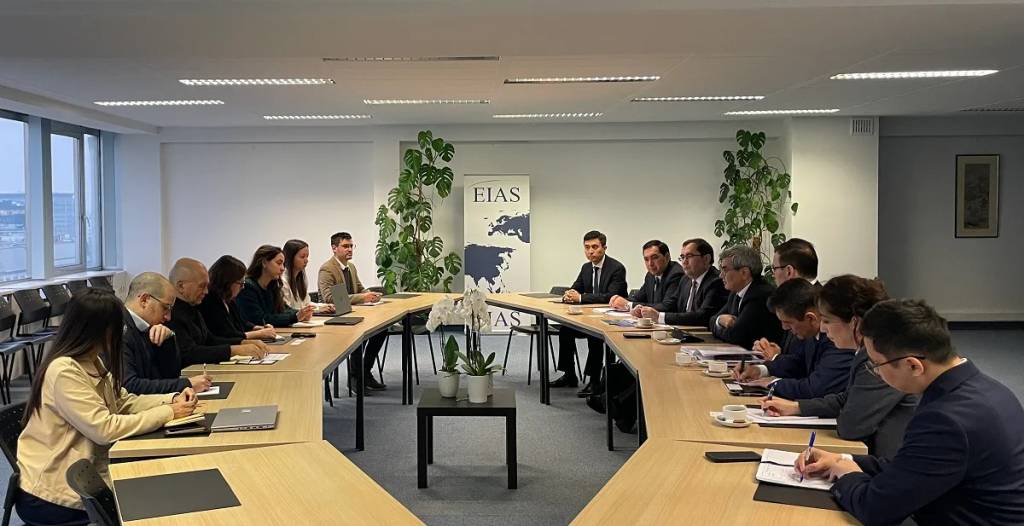
As part of their stay in Brussels, a delegation of analytical centers of Uzbekistan met with the Director of the European Institute for Asian Studies (EIAS) Lin Goethals.
The Uzbek side was represented at the meeting by the heads and experts of such leading analytical institutions of the country as the Center for Economic Research and Reforms (CERR), the International Institute for Central Asia (IICA), the Institute for Strategic and Regional Studies (ISRS), and the Center for Foreign Policy Studies under the Ministry of Foreign Affairs of Uzbekistan.
According to the IICA, at the meeting, the parties discussed the state of interregional cooperation between Central Asia and the European Union, the prospects for these relations, and the current development trends of the region.
IICA Director Javlon Vakhabov emphasized that Central Asia is again becoming an important link between East and West, North and South, playing a key role in transport routes such as the Trans-Caspian Corridor and the North-South route. Particular attention was paid to the conclusion of an agreement on constructing the China – Kyrgyzstan – Uzbekistan railway, which will connect the region to the European railway network.
In turn, EIAS Director Lin Goethals noted that such initiatives contribute to strengthening ties between the European Union and Central Asia, creating new opportunities for trade and investment. She paid special attention to developing the Middle Corridor, an essential step towards expanding transport corridors and strengthening regional economic cooperation.
Following the meeting, the parties agreed to continue the dialogue between European and Uzbekistan think tanks.
UzA








